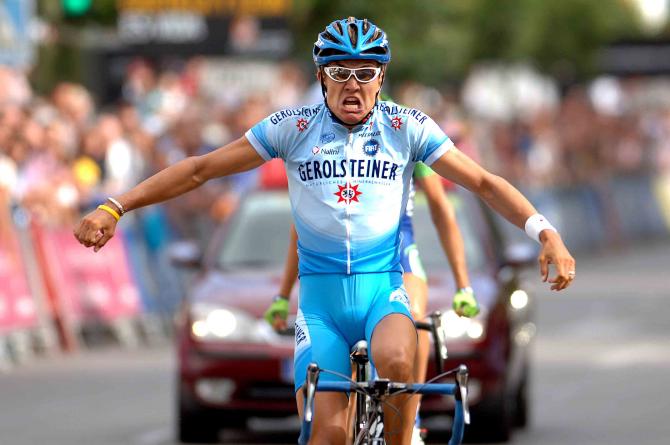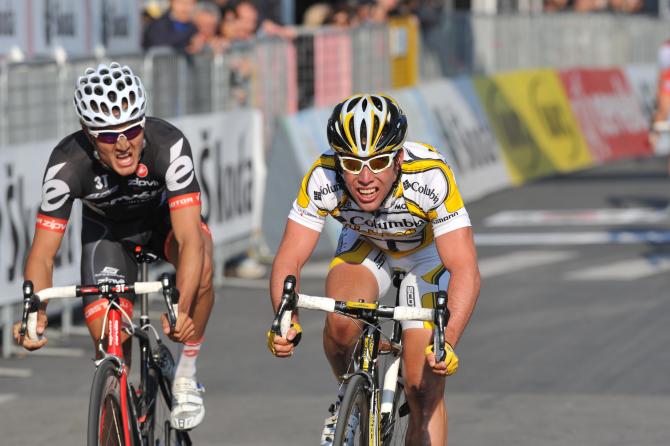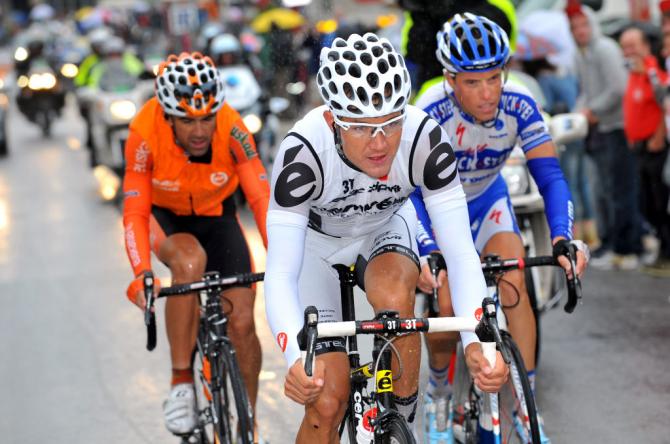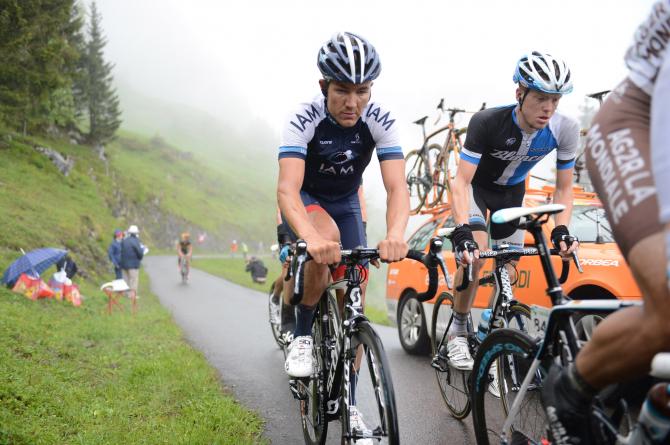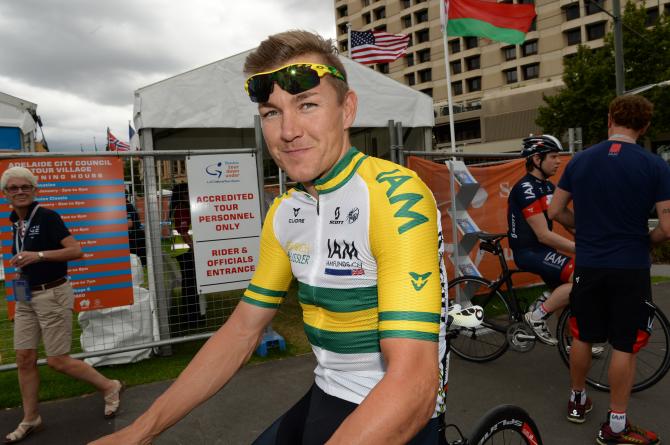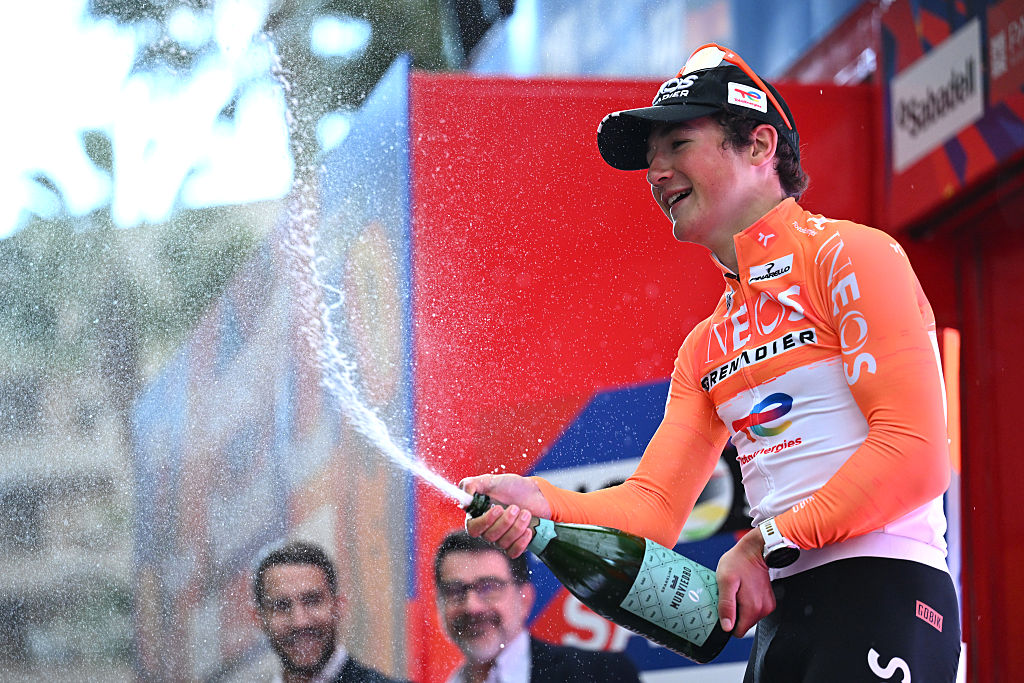Heinrich Haussler: The five races that changed my life
‘Tell Cervélo to make the bikes 2cm longer, then you’d have won’
The latest race content, interviews, features, reviews and expert buying guides, direct to your inbox!
You are now subscribed
Your newsletter sign-up was successful
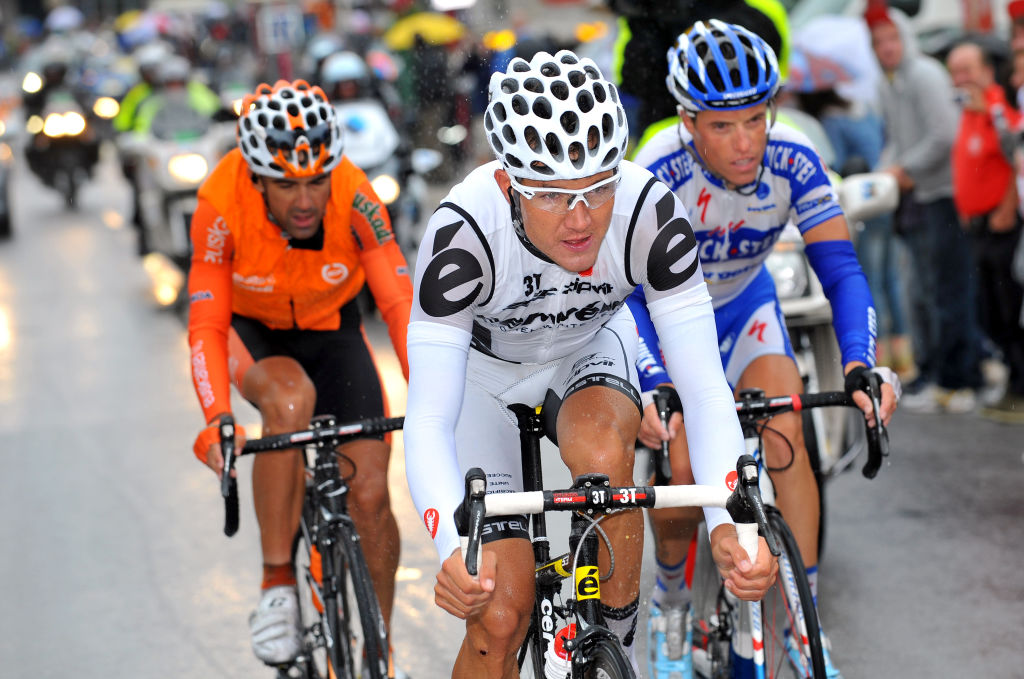
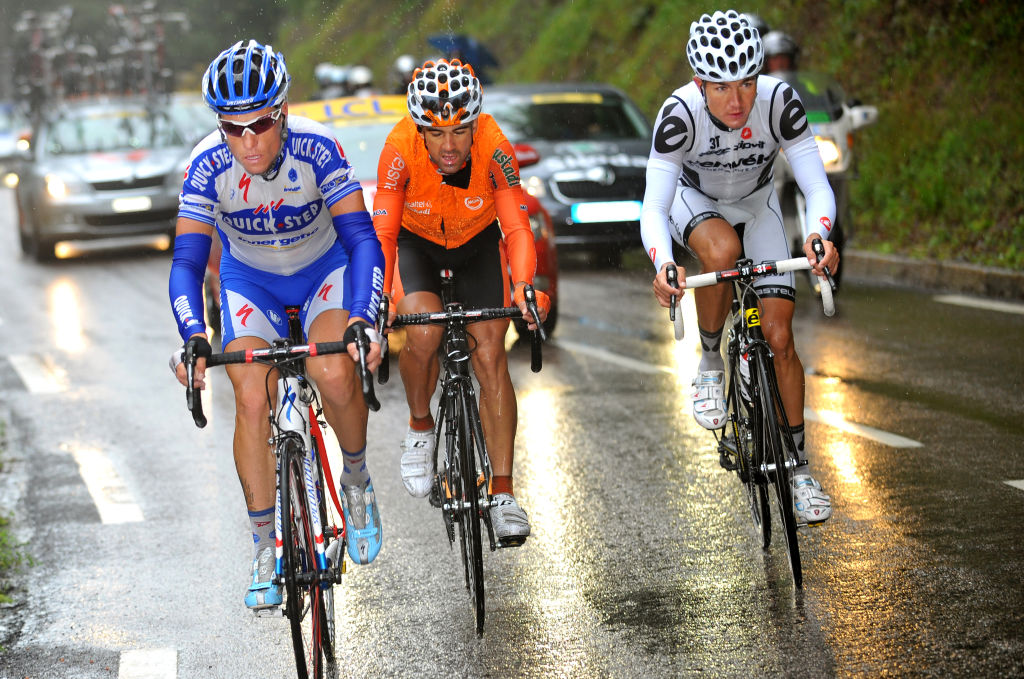
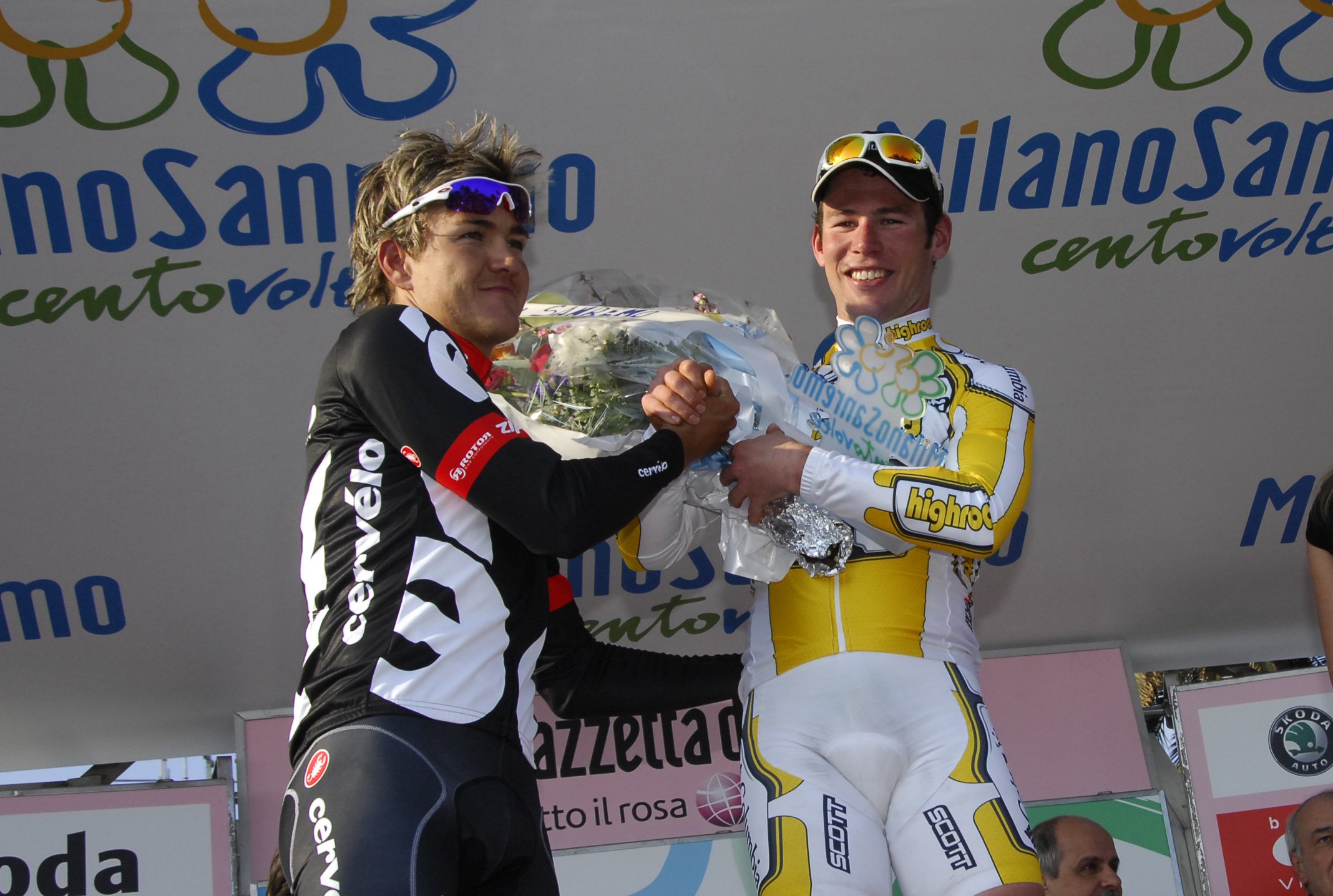
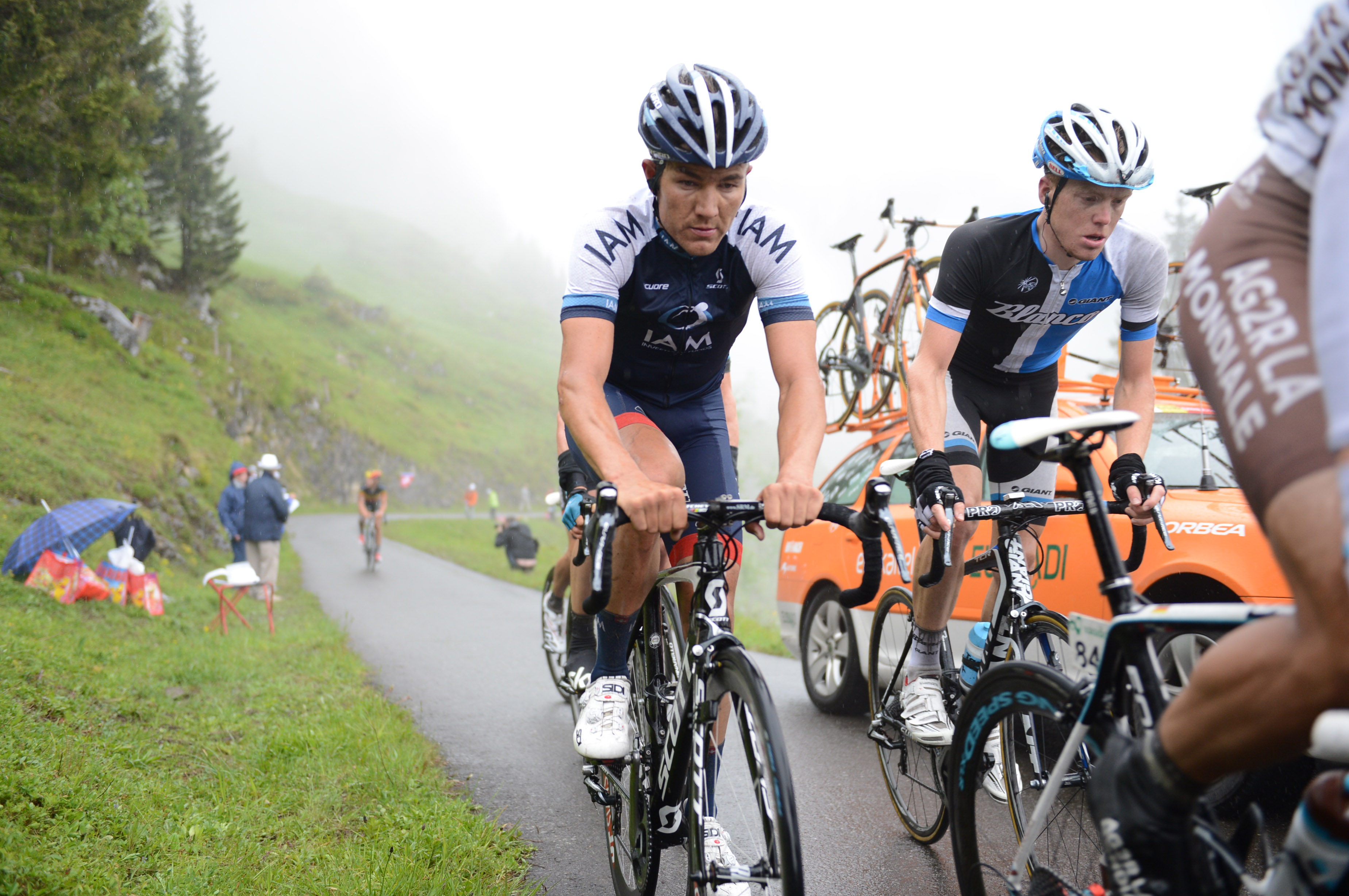
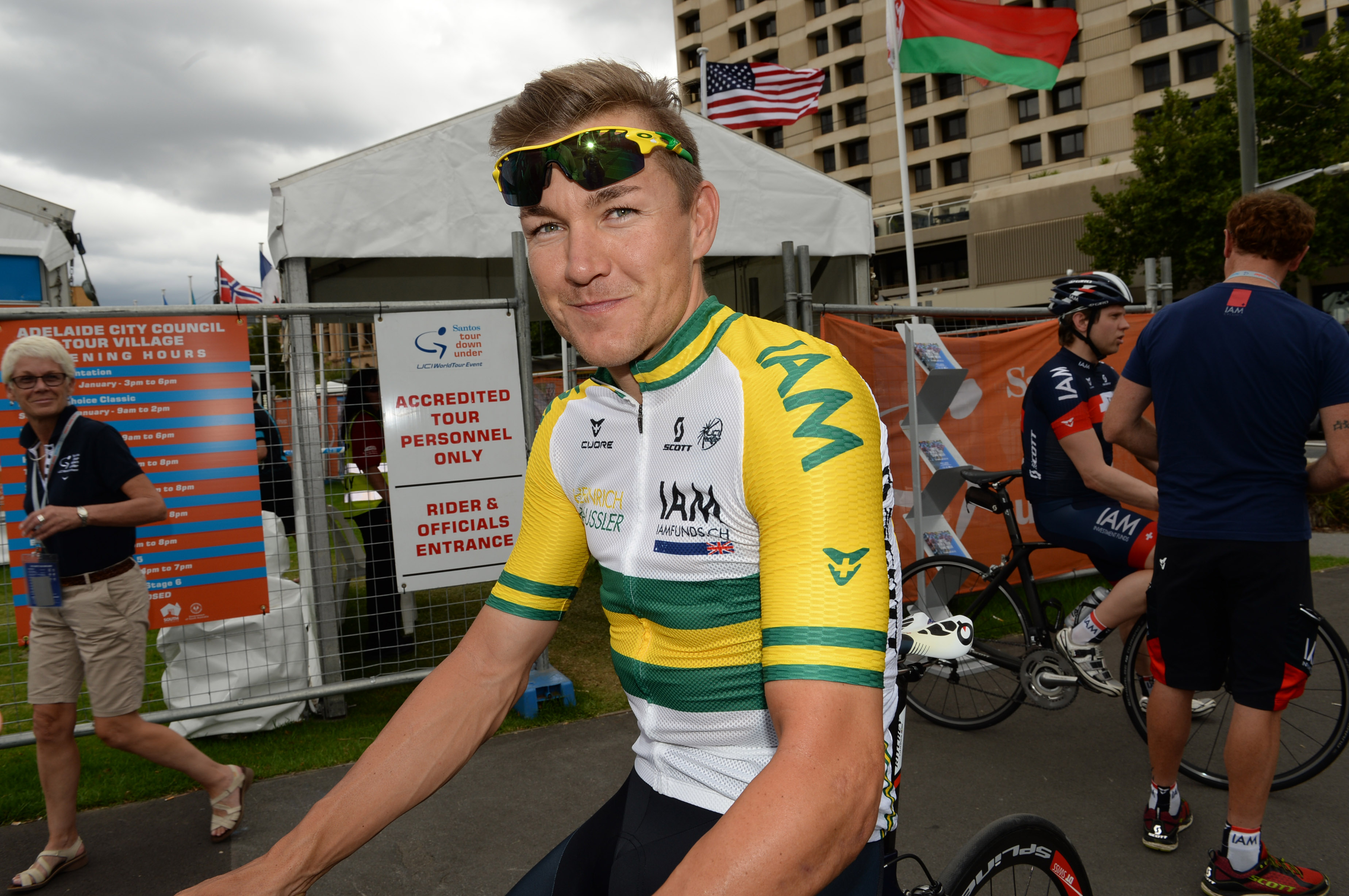
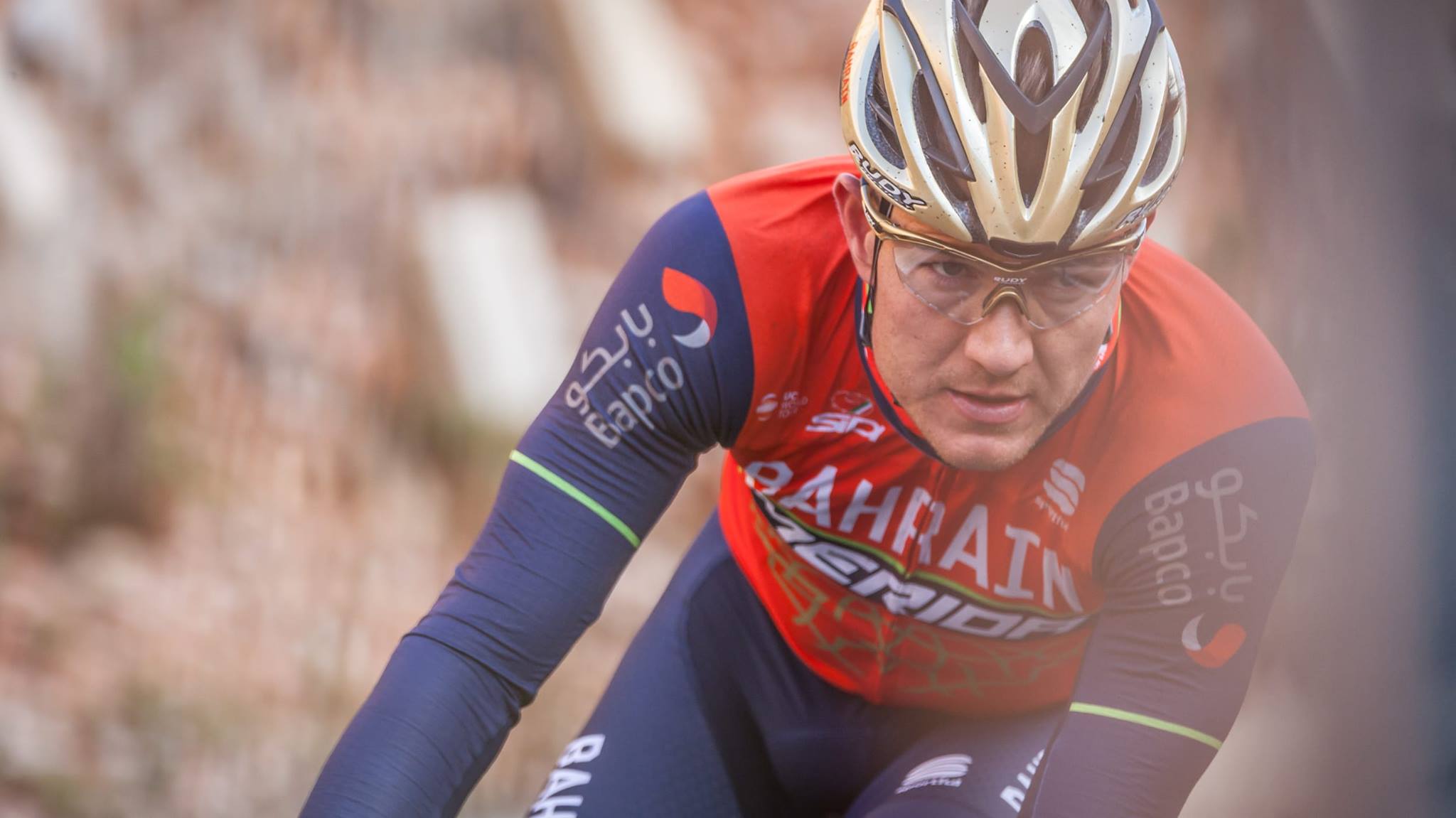
Heinrich Haussler has lived multiple lives during his tenure in the professional peloton. The path from his beginnings as a fast-finishing neophyte at Gerolsteiner to his current role as Classics road captain at Bahrain-Merida has been marked by as much heartbreak as happiness, but the Australian has always emerged with his enthusiasm intact. From Grand Tour stage wins to career-threatening crashes, from near misses at the Classics to a national title, Haussler has seen just about everything. As he begins his 15th season as a pro, he talks Cyclingnews through the five races that changed his life.
Vuelta a España 2005. Stage 19: San Martín de Valdeiglesias – Alcobendas
I remember it like it was yesterday, but it’s already 14 years ago. I was a neo-pro and this was towards the end of my first Grand Tour. A big break went up the road in kilometre zero, with maybe 25 guys in it. Between all the attacks and climbs during the stage, it kept getting smaller, and with 30k there were just three guys up front.
[Martin] Elmiger and I rode across and one rider got dropped. With one kilometre to go, one of the Spanish guys from Lampre [Juan Fuentes – ed.] attacked. I kind of acted like I was trying to cover the move, and then swung my arm like I was dead. Elmiger was super strong that day, and he pretty much closed the gap and then opened the sprint. It’s funny because we were teammates at IAM later and had a good laugh about it later. I was on the wheel, just waiting, waiting and I won the sprint.
I did two altitude camps before that Vuelta and I was riding very well the whole race. I remember I’d been in the front group at Hamburg the month before, with Zabel and Rebellin and all those guys, but I crashed with 10k to go. I remember being super upset in the shower afterwards, but I went up to the sport director and said, ‘I’m going to win a stage in the Vuelta.’
I think it was more a case of being cocky than actually believing it, but I did have some other good results leading up to stage 19, and I even got third on the last stage in Madrid two days afterwards. I was super young back then and racing was just fun. If a young guy says that now, the directors would say, ‘hey you’ll be lucky to even get selected for the Vuelta.’
Winning a Grand Tour stage in my first year was pretty big, and after that the team gave me a lot of opportunities in the sprints. So already in the first year, that changed my career completely.
The latest race content, interviews, features, reviews and expert buying guides, direct to your inbox!
Milan-San Remo 2009
I knew straightaway I was second… But I could have been a Milan-San Remo winner. I got second to Cav [Mark Cavendish – ed.] in the sprint. This race didn’t necessarily change my career but it’s a race where I think back and could kick myself. So many times back then, I ran the sprint back in my mind and thought about things I could have done differently.
I was there to lead out the sprint for Thor Hushovd, and that’s the reason I was swinging across the road right and left, because I was looking over my shoulder thinking, ‘ok, that’s my lead-out done.’ Then when you see no one is coming from behind you try to keep on going. You swing over again, and you see there’s still no one coming. But by then the lactic acid is almost exploding out of your ears. You’re getting slower and slower and you just feel that someone is coming behind. I threw the bike pretty much to the line with everything I had. But I knew I was second…
It was the first year of Cervélo and I was going well. I won stages in Qatar, Algarve and Paris-Nice, and I was good at Omloop Het Nieuwsblad. Thor won Omloop, so the tactic was that we’d go for Thor if it came down to a sprint, but if someone attacked on the Poggio, I was free to try to go with them.
It came down to a sprint, but I didn’t have so much experience of leading out or of the final at San Remo, and I just went past Thor way too quickly with about 400m to go. I didn’t even really give him the chance to get on my wheel. If I was attacking, I’d have done things differently. But if you look at the speed Cav had, I think he still would have won. It doesn’t matter what scenario we had.
It’s not like he won by chance. He was the fastest guy, but you still have a little bit of regret. Maybe if I’d done this or that differently… My brother texted me one minute after the finish saying: ‘Aw, mate, you should tell Cervélo to make the bikes 2cm longer, then you’d have won.’
Thor wasn’t pissed at all, and the team management were really happy. For a new team, having two guys on the podium was great – though you’d prefer one guy on the top step. When we were both standing on the podium, we were disappointed, but the whole team had ridden well that day and that whole Classics season was an amazing team effort. I got second at Flanders two weeks later.
Looking back now, I’d see it as a regret. I could have been a Milan-San Remo winner. I’ve made it to the final other times since, but my role has been helping different captains, which is also fine. I’m getting older now, and I know that’s a role I can do well.
Tour de France 2009, Stage 13: Vittel - Colmar
This was the number one win of my career. The day before had been super hot, but when we got to the hotel and we saw the weather forecast was filthy. And I thought, ‘Ah yeah, this could be good.’ We were working for Carlos Sastre for GC and Thor for the green jersey on that Tour, but before the stage, [Cervélo directeur sportif Thomas] Campana came up to me and said, ‘Heino, if you want to have a go in the breakaway, this is your only chance.’
It was right up my alley because Colmar is only 30 kilometres away from where I live in Freiburg, so I train in the Vosges quite bit. I knew the roads, and, above all, I knew the downhills.
It was raining and cold all day. On top of the climbs the temperature was only 6 or 7 degrees. I don’t necessarily love that weather, but I know I handle it better than others. I only had a jersey on, whereas the other guys were wearing big jackets.
Christophe Moreau attacked at kilometre zero, and few of us came across in a big group. I thought we needed to make the group smaller, so they’d stop pulling from behind. I attacked on the downhill, and one guy from Euskaltel, Ruben Perez, and Sylvain Chavanel came with me, and we basically rode full gas all day to the finish.
On the third last downhill, Chava started losing my wheel, and I was like, ‘what’s he doing?’ We were always in attacks together in the Classics, so we knew each other well, and we each knew how strong the other was, so I thought he was just playing games. Either way, Jean-Paul van Poppel, our sports director, told me it was too far from the finish, so I waited for him.
When the same thing happened on the next downhill, I decided to just keep it going. It wasn’t that I attacked, but I knew the downhill and I had a lot of confidence in our tyres and so on. This time, Jean-Paul just said, ‘Ok, now you’re going to have to go full-on to the finish.’
It was only in the last kilometre I realised I was going to win because I was just going full gas all the time. I’d got so many second places that season already, especially at San Remo and Flanders, and I kept thinking something was bad was going to happen and I’d get second again. Everybody in the cycling business knows how hard it is to win a stage at the Tour. Pulling it off when it was the only chance I had made it even more special for me.
Tour de Suisse 2013, Stage 6 : Leuggern – Meilen
I’d already had a bad crash in Suisse in 2010 with Cav, when I broke my pelvis and my hip. After three months, I got back on my bike without rehab or physio, and that didn’t help my knee either. I ended up having a lot of knee injuries during my time with Team Garmin. Every now and then I’d get a win or a top 10 in a Classic, but it was never how it was supposed to be, and it didn’t really work out with Garmin.
I had the opportunity to go to IAM in 2013, and that was a great team. In the Classics, I had the feeling that I was getting back to a good level – not like 2009, but starting to get back there. I won a stage in Bayern Rundfahrt, went to altitude and then to Tour de Suisse. I got some good results in the sprints but then I had a bad crash on stage 6.
It happened after two or three kilometres, and I couldn’t do anything about it. The break went and then maybe 20 positions in front of me, a guy braked, and it was like a chain reaction. You couldn’t brake quick enough and about 20 guys went down. It was the stage Gregory Rast won, I can still remember, because the break stayed away to the finish. We’d been planning to work to bring it back for the sprint.
I had super pain everywhere, but you always stand up and try to get going, so I got back on the bike with a bloody broken hip and pelvis. The race doctor came. He was a German doctor, who had done one or two days with Gerolsteiner. I said, ‘push my left foot into the pedal,’ because I couldn’t put any pressure and I could only push with my right leg.
It’s the adrenaline, but when you crash, you sometimes get that feeling that it will get better after a couple of minutes and you’ll get back into the peloton. But no, it just got bad. Even when I stopped, the guys had to twist my foot out. When I got to hospital, I found out I’d broken my hip and my pelvis, and I just started crying. I thought it was finished.
I was super depressed, just upset, sad. But then two or three days pass by and you’re like, ‘Fuck, it’s just a setback.’ I’d already had so many problems with my knee, and that made it super frustrating. I’d signed big contracts and had big expectations from the team, but I couldn’t deliver.
I went through a lot of that again in 2017 with my knee injury, when I also thought it was finished but it also gives you that willpower to fight back. I’m smarter now than I was in 2010 or even in 2013 when it comes to rehabbing an injury. I think it makes you a better rider and person for the future.
Australian national championships road race 2015
I got back to a decent level for the Australian championships in 2015. David Tanner was new at IAM that year, and it was a race we really targeted. Dave and I went down to Australia early in December to do a two-week training camp near Falls Creek, and then go on to nationals and the Tour Down Under.
It was just me and Tanner, and a friend who worked for IAM as a soigneur. Roger Kluge also came down to train with us ahead of Down Under, so he was standing on the side of the road handing up bottles.
The plan was that I’d go in the early break and Dave would wait for the last lap. In the first lap, bang, 25 guys go clear and I’m in there, but halfway through the race, GreenEdge rode to close the gap and we got caught. I’d already spent a lot of energy pulling on the front, so I thought that was my race done. I was just going to help Dave for one or two laps and then stop. But one lap later, on the same climb, another 18 riders go and somehow I was in there. I don’t know how, because I thought I was dead.
With four laps to go, we had a good gap over the peloton. BMC were chasing but they couldn’t close it down and with three laps to go, I knew we were going to make it. With two laps to go, I got popped out the back a little bit over the top of the climb, but there were only 6 or 7 riders left by then. I knew if I could make it to the last climb, then I could make it to the finish.
On the last climb, guys like Jack Bobridge, Miles Scotson and Caleb Ewan were just attacking like crazy, and I was just like, ‘Fuck, what are they doing?’ There was no way they could keep doing that to the finish, so I just stayed on my 500 watts. That was all I could push at that moment, because if I’d gone 700 watts, I would’ve just exploded. Sure enough, the guys who were attacking like crazy got to the top and started watching each other. They probably didn’t have the power to keep going and I got back on.
In the end, the sprint went perfectly. Bobridge attacked with 700 or 800 metres to go. Everybody hesitated but Caleb closed the gap to Bobridge, and then he opened the sprint with like 200 metres to go into a full gas headwind. Caleb had won the Bay Crits picking his nose, and he was on a really good day at nationals, so maybe he thought, ‘I’m going to close you down and win the sprint, it’s easy.’
I was sitting behind Caleb thinking, ‘That’s it – thanks mate.’ Of course, it wasn’t that easy, but in that sprint, everything happened like it was in slow motion.
It was just an absolute perfect day: to become Australian champion and wear the jersey for a year afterwards. Switching from racing for Germany to racing for Australia had taken a long time with the paperwork. I’d ridden for Germany as a junior and under-23, and had the benefits of the German system, which made me the rider I am today. But while I love living in Germany, deep down, I was always Australian. This was a really special day.

Barry Ryan was Head of Features at Cyclingnews. He has covered professional cycling since 2010, reporting from the Tour de France, Giro d’Italia and events from Argentina to Japan. His writing has appeared in The Independent, Procycling and Cycling Plus. He is the author of The Ascent: Sean Kelly, Stephen Roche and the Rise of Irish Cycling’s Golden Generation, published by Gill Books.
